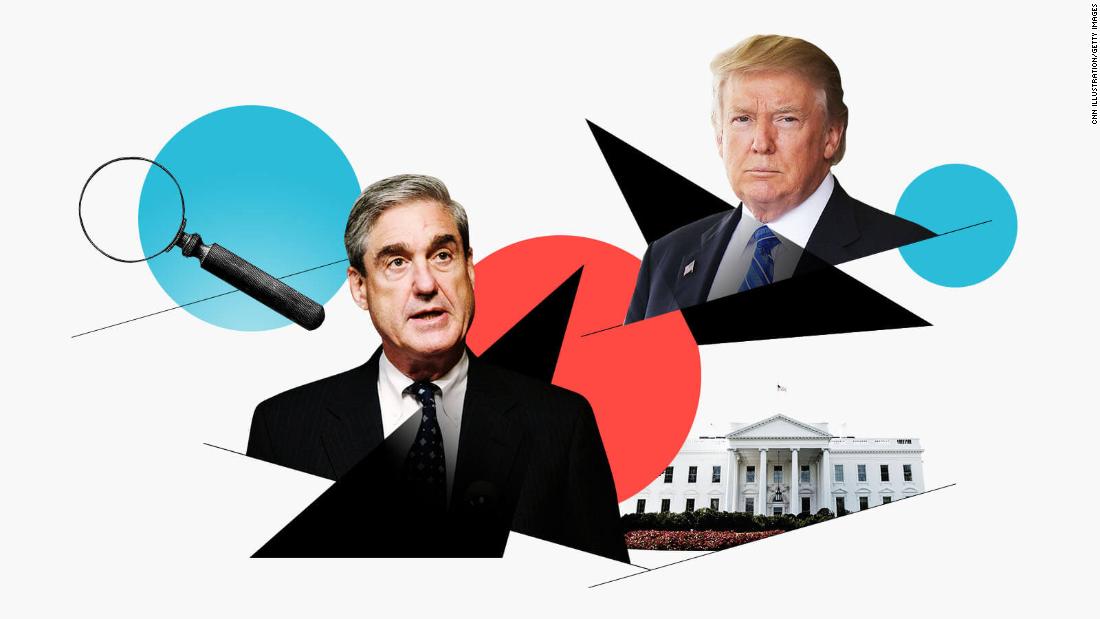[ad_1]
In large part, he’s winning it because he’s the only one arguing right now. Robert Mueller, presumably hard at work on his investigation, is not out in public defending himself or his staffers — Trump likes to point out that a number of them have contributed to Democrats in the past.
Particularly among Republicans, approval of the Mueller investigation has followed. It is when Mueller is viewed as a partisan — and that’s what Trump has tried to hammer into people’s minds for months — that the President can try try to inoculate himself whatever action Mueller might someday take.
It’s not just Mueller. During his year and a half as President, Trump has waged a campaign to erode public trust in some of the country’s most important institutions — the Department of Justice and the FBI — as a self-defense mechanism.
Calling elections in which he’s not expected to do well “rigged” is nothing new for Trump; in 2016, when polls suggested he would lose, he pre-emptively questioned the results and said, without proof, it was “rigged” against him.
After he won the election, but lost the popular vote, he called the results into question again by saying, repeatedly and without evidence, that there were millions of illegal votes.
The thing is, if the Mueller investigation is viewed as a partisan witch hunt — and there’s no evidence that’s what it is — then Trump has won the the political argument.
He’s done a lot to keep the investigation in the news by tweeting about it so much. And each time he’s mentioned it, he’s called it a witch hunt or impugned the staffers as part of the deep state cabal he imagines is out to get him.
Republicans, Trump’s base, have responded. As CNN’s director of polling Jennifer Agiesta wrote this month, Republicans are souring on the investigation.
Overall, 44% approve of the way Mueller is handling the investigation and 38% disapprove. That’s a slight negative shift overall since March, when 48% approved of Mueller’s work. Just about all of that change has come from Republicans, who now give Mueller a 17% approval rating, down from 29% in March. Among Democrats and independents, approval ratings for Mueller have not changed significantly.
Trump arguably doesn’t even need to affect the opinions of Democrats and independents. As long as he can convince Republicans the Mueller probe is tainted, it becomes political.
Now, all of that could change depending on what, if anything, Mueller ultimately uncovers or alleges. But no matter what it is, because of Trump’s “witch hunt” bombardment, he’ll be doing it from a place of less public trust. There are two tracks to this — the public one that Trump is pursuing, and the criminal one that Mueller is pursuing against former Trump campaign aides. They’re related but distinct.
We know the type of demonizing strategy Trump is pursuing in public can be effective because it’s worked when Bill Clinton was being investigated by Ken Starr and Hillary Clinton was complaining about a “vast right-wing conspiracy.”
“I think the idea of having an enemy when you’re the object of a special prosecutor is a very important one,” he said. “Clinton only survived a special prosecutor because he made Ken Starr the enemy.”
And that’s also probably why Democratic leaders offer such tortured responses to the idea of impeaching Trump and why they’d rather talk about policy ideas than the Mueller probe. They saw Republicans lose a very political, public trial against Clinton in the ’90s. Trump’s been mounting his defense in the same way, in advance of whatever Mueller may ultimately come up with.
[ad_2]
Source link


